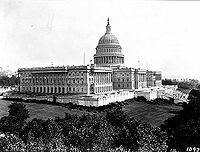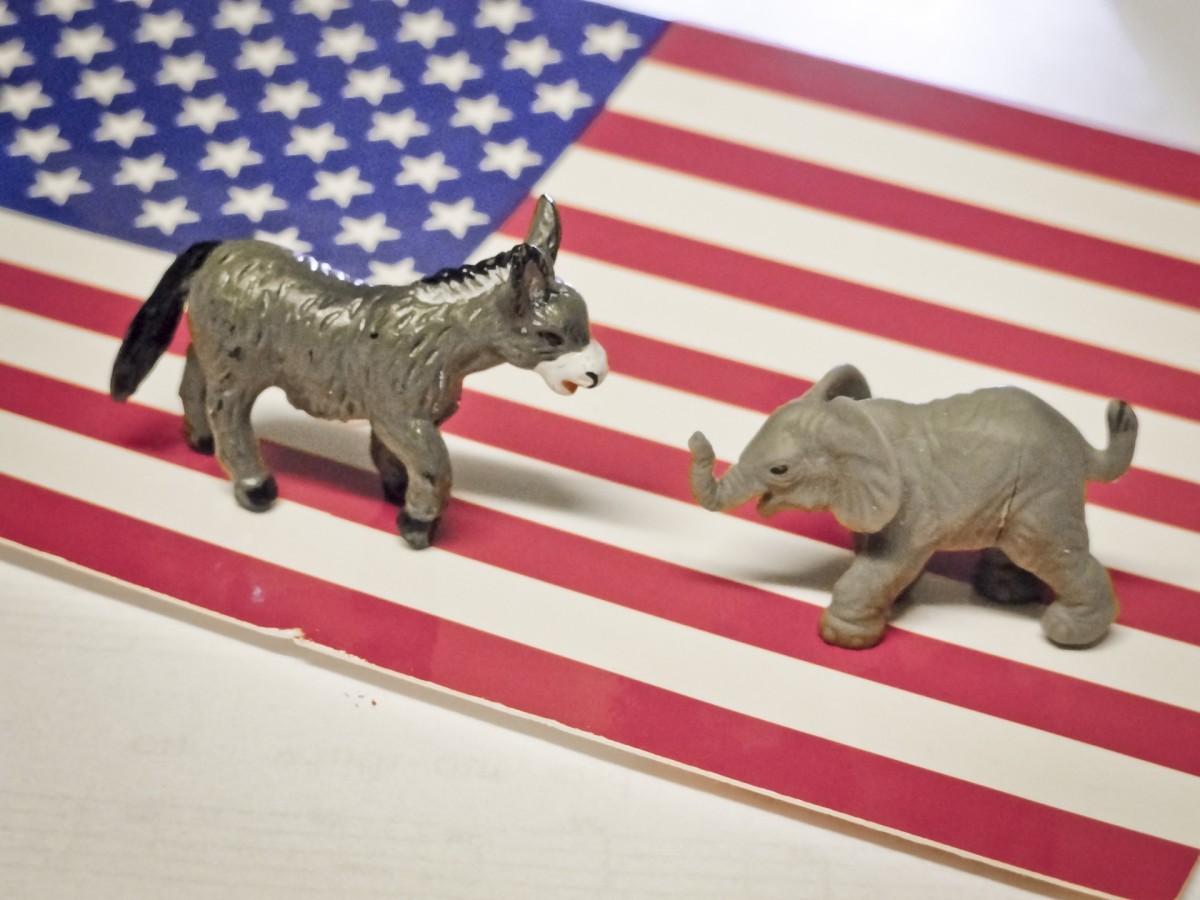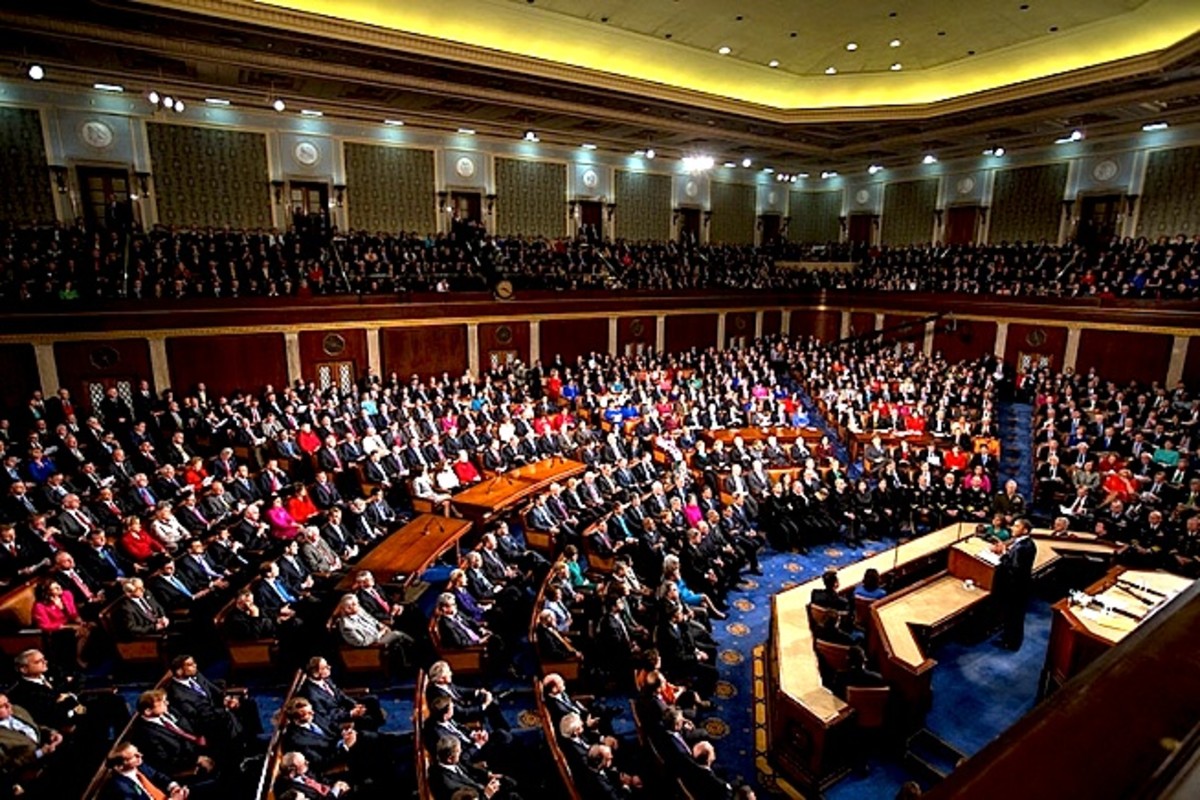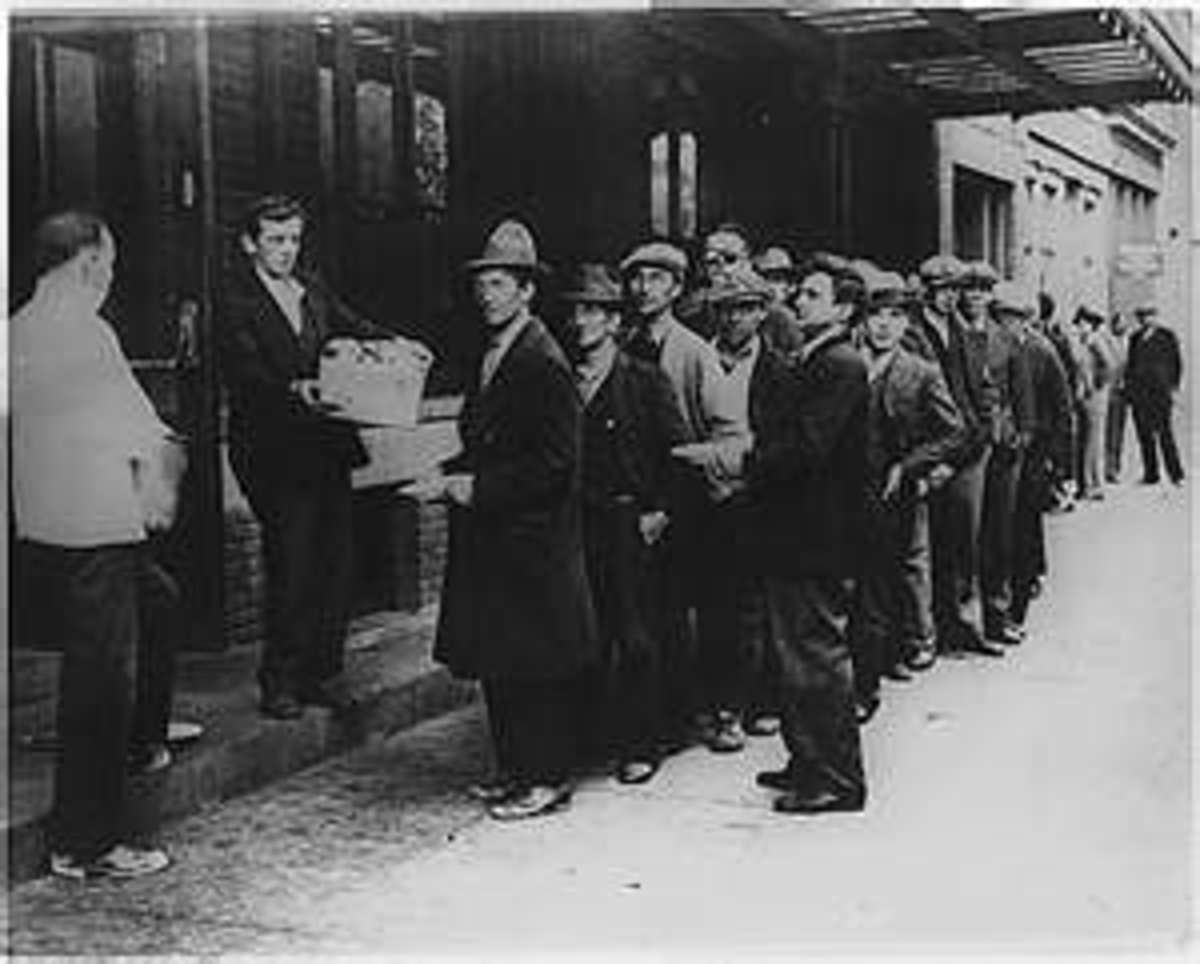And Government Should Act Like Business WHY? [253*2]
The PANACEA
ALL THE WORLD'S PROBLEMS WOULD BE SOLVED if the federal government simply acted like business does; so goes the refrain from those who think "limited" government is better than "right-sized" government. The assumption is that because businesses have shareholders, members, or partners to report to that they take extreme care not to lose them money. Part of doing that is balancing their budgets (that seems to be the most important), accomplish rigorous capital planning, plan for future operating costs from capital expenditures, accurately estimate future costs of operations, accurately estimate current and future business environments, develop and implement effective marketing plans, and much more. These critics don't understand why the federal government (hereafter called government or gov't) can't/won't do the same thing. Their reasoning, of course, is if gov't did, then it would run as well as business does.
I beg to differ.
Government Is Not A Profit Making Business ... It Is Too Messy

Government Is Not A Profit Oriented Organization!
INSTEAD, GOVERNMENT IS A NON-PROFIT SERVICE ORGANIZATION whose service is described in the Preamble to the Constitution of the United States and whose organization to deliver that service is contained in the body of the same document. The target audience for whom the service is to be provided are the People of the United States who created it in the first place and some of whom staff the organization, i.e., the Legislative, Executive, and Judicial branches. By design, the "revenue" of the government to pay for the services are the taxes nobody wants to pay. Further, that revenue isn't dependent on the quality or quantity of the service provided, like it would be in a business, instead it is dependent upon the foibles of politicians and competing economic philosophies. Do you know of any business whose income has such a precarious basis?
Further, a "design flaw" was purposely built into the framework of government to prevent it slipping into the form of dictatorship which is prevalent in most businesses, or worse. That design flaw is called "checks and balances" and leads to the inefficiencies we see in government everyday. Generally, folks, the mess you see on Capitol Hill is supposed to happen, it isn't meant to be clean and pretty and fast; it was created to be ugly. (Having said that, the intent was that government nevertheless be effective in the end; but not having perfect hindsight, the framers left out a couple of things which would have prevented the gridlock we see today.) In other words, our government wasn't created to run like a business. If that is what the framers wanted, that is what they would have done in the first place, don't you think?
Business Is Really Not What It Is Cracked Up To Be
CRITICS ACTUALLY HAVE VERY FEW EXAMPLES in the business world they can point to as examples as to the way they think government should be run. Let's start with "Balancing the Budget", a favorite refrain. How many business or households do you know that actually do that in the short-term? If say "lots", then tell me why personal and business bankruptcies are so high? The definition of a bankruptcy occurs when debts exceed the ability to pay them, isn't it?
So, how has business done in this regard? The following table list several major corporations over the years that went down in flames for various reasons, but invariably, being in debt was one of them.
15 MAJOR CORPORATE BANKRUPTCIES SINCE 2001
Pacific Gas & Electric - 2001- $36B
| Thornburg Mortgage - 2009 - $37N
| Chrysler - 2009 - $39B
|
MF Global - 2011 - $41B
| Conseco - 2002 - $61B
| Enron - 2001 - $66B
|
CIT Group - 2009 - $80B
| GM - 2009 - $91B
| WorldCom - 2002 - $104B
|
Washington Mutual - 2008 - $328B
| Lehman Bros - 2008 - $691B
| American Airlines - 2011 - $25B
|
Energy Future Holdings - 2014 - $36B
| Refco, Inc - 2005 - $33B
| Calpine Corp - 2005 - $27B
|
JUST THESE 15 BANKRUPTCIES REPRESENT $1.7 TRILLION DOLLARS IN ASSETS (AND MUCH MORE IN DEBT THAT WAS FORGIVEN OR REORGANIZED)
Even well known brands have fallen by the wayside or diminished because they made the wrong strategic decisions. One that was used in a 400-level business class was Montgomery Wards. Sears & Roebuck and Montgomery Wards were great competitors in the late 1800s up through WW II. After WW II, Montgomery Wards chose the wrong business model and Sears chose the right one. This sent Wards on a slow, painful decline until it was forced out of business in 2000. (It has since reemerged as an on-line catalogue company known as Wards.) Kmart suffered the same fate after Wal-Mart came along and Sears made the mistake of buying them, trying to get into the discount business. Now Sears is going the way of Montgomery Wards.
The point, of course, is that history is full of businesses making bad decisions and ruining themselves and the lives that depended on them. Then we have hundreds, or maybe thousands, of major enterprises devoted to committing legal fraud on the public and employees such as Enron, WorldCom, CitiGRoup, AIG, Angel Food Ministries, State Farm, Athena Capital Research, BP, Massey Energy, and so on. Exactly why should the government use these as examples of how to conduct the business of government?
Critics are going to have an extremely difficult time coming up with even a small list of corporations (I can actually think of one, Battelle Memorial Institute, a contractor who used to work for me) for whom the government ought to emulate even if they can get around the serious problems created by the lack of a profit motive and the horrible decision making processes endemic to the Constitution. I think the critics of how the government does its budgeting need to bring their focus back to the real world and be practical. What they want rarely happens even in the world of business let alone trying to fit a square government peg into a round business hole. They need to come to terms with the fact that government is a square peg and work within that paradigm; within that reality.
WHAT IS YOUR OPINION
Do You Think Government Can Be Run Like A Business?
Do You Think Government OUGHT to be Run Like a Business?
DEMOGRAPHIC POLL
Do you identify politically most often with the
RELATED LINKS
- The Poster Child of Irony: NSA vs Walmart [226*6]
Why is it that Americans get so incensed over government snooping to protect their national security, but seem totally immune to the much more invasive spying by Corporate America? - Tax Cuts Spur GDP Growth? Oh Really! Let's Just Take...
The Conservatives say tax cuts ALWAYS spur growth but the REAL answer is IT DEPENDS on the situation. This hub looks at when tax cuts work and when they don't. - The American Dream: Why is the American Middle Class...
America is rapidly approaching the inequality between the haves and have nots that existed in late 18th century France; right before the French Revolution. What is worse, we are doing it on purpose. - American Dream: How Many Jobs Are Really Available a...
Conservatives think jobs are out there for the taking by the poor rather than accept - The Federal Government Is NOT A Business, It Never W...
BUY A BOOK FROM AMAZON ON POLITICS
© 2014 Scott Belford









